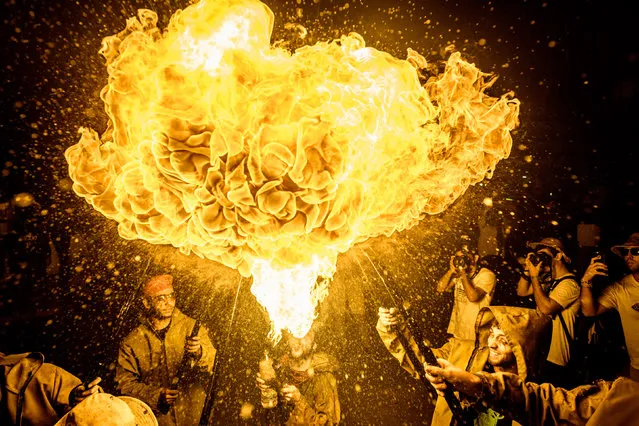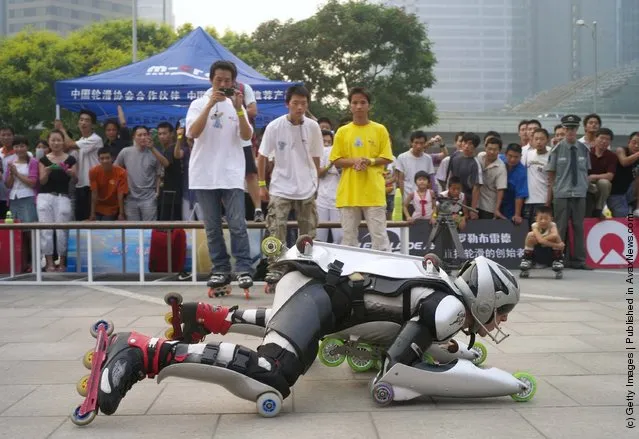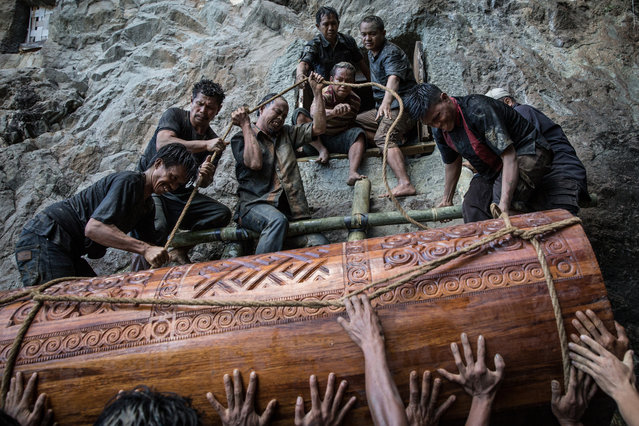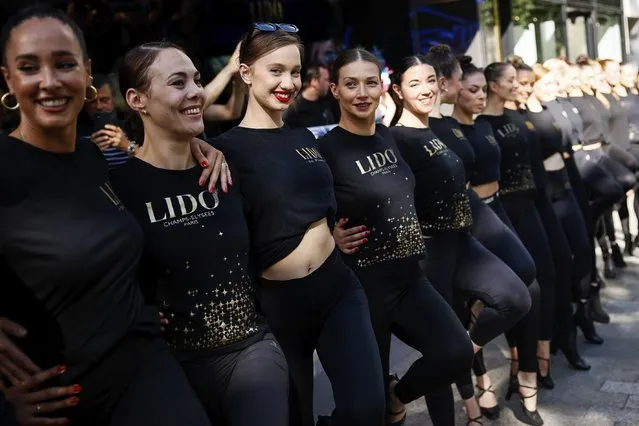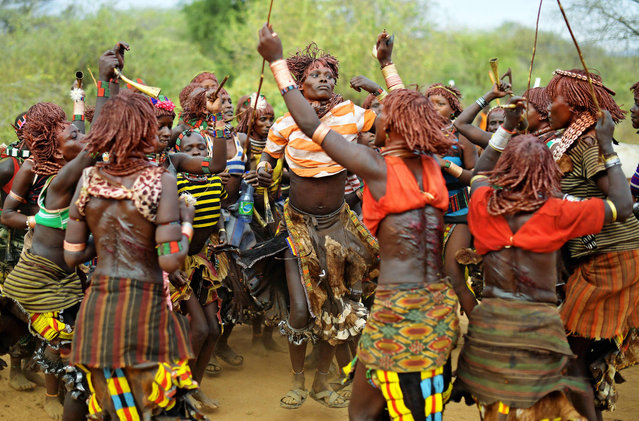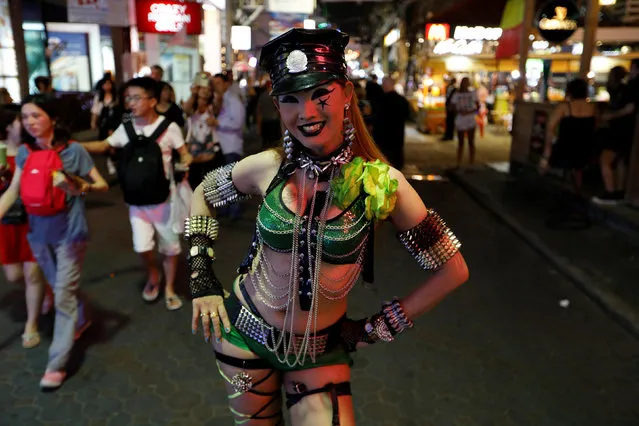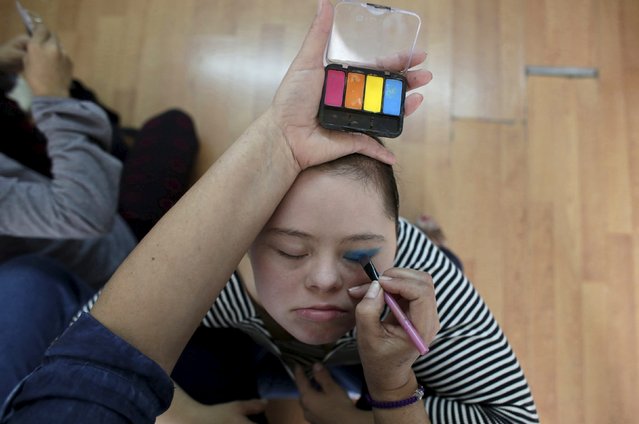
Aimee, 19, who has Down syndrome, has make-up applied by her mother before a presentation in Monterrey, Mexico, in this picture taken April 9, 2016. The association “Abrazame con Discapacidad” (“Embrace me with Disabilities”) teaches folk dance to low-income people with Down syndrome and manages presentations at public events where they receive a payment, as part of a therapy that helps improve their motor system, learning and self-esteem, the association said. (Photo by Daniel Becerril/Reuters)
16 Apr 2016 12:19:00,post received
0 comments

